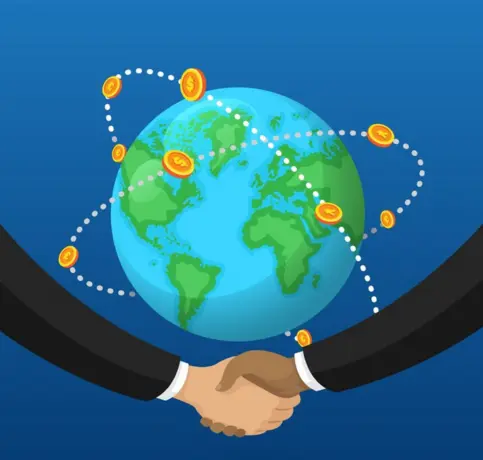Remitforex – The Money Transfer Expert
Remitforex – The Money Transfer Expert


A currency or currency unit is the nation’s physical money. Demonetization is a process in which a country’s currency unit is no longer valid. In other words, Demonetization is a process in which the bank notes and coins are no longer valid. You cannot buy any goods or services with it because the currency seems invalid. Demonetization can happen for several reasons.
The demonetization process is an economic process in which the nation’s currency changes. The old currency is pulled back from the market, and a brand new currency is introduced. It is pulled back from the need for extra circulation.
During its process, people are given time to exchange currencies. The respective country’s government will declare a fixed time to exchange the bank notes. When the same is discontinued, it will not have any value, which means you cannot avail any services or goods with it.
It can occur in many different forms. The country can either introduce a new set of banknotes or issue a new currency. If improperly implemented, it can affect adversely. This is a rare form of decision that a country takes.
When the country reinstates the demonetized currency as legal tender, it is called remonetization.
Demonetization is a very rare process. There are many reasons for Demonetization. Different nations do the process for different purposes. Some of the common reasons for Demonetization are:
Demonetization can happen when the market is hyperinflated or gets out of control.
It can also occur for removing crimes from the economy like tax evasion, counterfeiting, terrorism etc.
It can also happen to introduce a standard currency.
There are many advantages that a country gains from the process of Demonetization. The reasons for Demonetization depend from country to country. Some of the benefits of Demonetization are:
Reducing Criminal activity: This process reduces the amount of crime in the economy. When the old currency is worthless, the dealers of the currency are adversely affected. This may constitute terrorists and illegal money dealers or individuals involved in counterfeiting; banks will check to see if old banknotes are fake before exchanging them, enabling the government to get rid of fake money from the system.
Preventing Tax Evasion: Demonetization of currency can also stop tax evasion since individuals who are doing so must trade their current money or run the danger of their money-losing all of its value. The government can identify tax evaders and actively tax their unreported gains throughout the currency conversion process.
Promoting a cashless economy: It can ensure a digital promotion of the currencies. It can also reduce the risk of carrying physical currency.
Demonetization can cause chaos and distress in the country. This is a process which everyone does not accept. It can create a lot of expenses. Some of the demerits are mentioned below:
Cost and expenditures from printing notes: The costs associated with producing new banknotes and coins and ending the use of existing currency are some of the initial downsides.
Do not reduce the whole criminal activity: It cannot wholly reduce the illegal activity in the market. The criminals deal with the currency in the form of assets and Gold.
Chaos among the people: People tend to rush and fight in the queue as they may be scared of currency discontinuation.
Although it is not a practice that is frequently used, numerous nations have demonetized their currencies in the past. Every country will have different reasons for Demonetization. Some countries which have demonetized in the past are:
United States of America: This is where Demonetization started. The Coinage Act of 1873 demonetized the silver coins in favour of Gold. This affected the economy, and the country had an economic downturn for the next 5 years. Due to the constant request and pressure from the silver miners and farmers, the Act was passed, and the currency was remonetized.
Again in 1969, the currency was demonetized for the elimination of black money and acts of crime by President Richard Nixon. It was a huge success and kick-started the American Banking System.
India: India demonetized the currency notes of 10,000,1000 and 500 notes in 1978. This happened to eliminate the black money from the market. The RBI governor at the time opposed the action because he believed it was directed against previous corrupt government officials. Everyone had a week to exchange any large-denomination bills. Higher currency denominations were such a negligible portion of the entire stock of money that they had no appreciable impact on the money supply or the cost of basic goods.
The following Demonetization was held in 2016, with the discontinuation of 500 and 100 rupee notes. It was carried out to lessen the availability of fake money used to finance crime. Cash was in limited supply all around the nation when the Demonetization was announced as people rushed to exchange their old banknotes. It caused economic disruptions and decreased India’s industrial output.
Ghana: Ghana demonetized its 5 Cedi currencies to reduce the black money effect and tax evasion. The population started to invest their trust in actual goods and foreign currencies, rendering the exercise a total failure. Additionally, the general public lost faith in the financial system, which created a new illicit currency market.
Nigeria: The military government of Muhammadu Buhari started printing new currency notes in different colours to make the existing currency notes useless. The attempt to turn around the overinflated and indebted situation of the economy ended worst.
Myanmar: To eliminate the black economy in 1987, the military invalidated 80% of the currency in circulation. There was a massive protest from the students, which led to the government’s crackdown the following year.
Soviet Union: To create a parallel economy, 50 and 100 rubles were demonetized from the economy of the Soviet Union. Due to this, the economic situation was distorted, and several countries were affected. As the economy started to decline, people began to lose faith in the government. After the failed attempt at Demonetization, Gorbachev, the then leader, was removed from power in August. Some historians think these incidents contributed to the eventual collapse of the USSR.
European Union: Euro was introduced as a unified European currency on 1st January 2002. About 8 billion notes and 37 billion coins were distributed to different banks and post offices throughout the country. The citizens were informed in advance, and the currency switch was hugely successful.
North Korea: Currency changes were suggested by the Kim Jong-II administration to combat the illegal market and boost the economy. When the price of necessities increased, the decision backfired, and many vehemently opposed the modification. After that, the finance minister was killed.
Zimbabwe: The government decided to switch the Zimbabwe dollar to the US dollar in 2015 to stabilize the nation’s economy, which was suffering from hyperinflation. The quick choice backfired, as most wealthy people saw the value of their accumulated riches fall. The economy suffered due to the loss of competitiveness, which led to a sizable decline in exports and popular discontent.
Demonetization of a country happens when its existing currency unit is no more valid, and a new currency is introduced to the market. The main aim is to eliminate black money and criminal activities. It can do both good and bad to an economy.
Demonetization typically slows economic expansion and lowers GDP in the short term. Many industries and sectors can temporarily halt during the conversion process.
It also does some good to society and trade. Demonetization aims to combat financial crime; by increasing transaction transparency or preventing the exchange of counterfeit currency, a government can raise tax income and make more significant investments in their nation.




